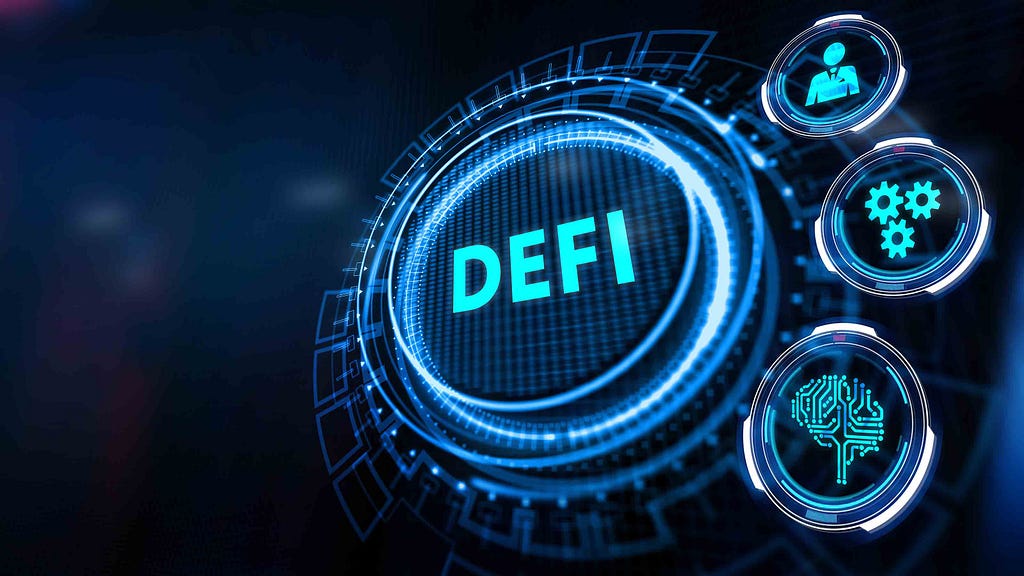
As Decentralized Finance (DeFi) continues to gain traction, the importance of security within this ecosystem cannot be overstated. With billions of dollars at stake, understanding the risks and implementing best practices is essential for businesses and individuals looking to engage with DeFi platforms. This blog will explore the critical aspects of security in DeFi and outline best practices for protecting investments in 2024.
Understanding the DeFi Ecosystem
DeFi represents a shift from traditional financial systems to decentralized applications (dApps) that operate on blockchain technology, primarily Ethereum. These applications facilitate a variety of financial services, including lending, borrowing, trading, and investment, without the need for intermediaries. The open nature of DeFi allows anyone with internet access to participate, but it also introduces unique security challenges.
Common Security Risks in DeFi
The decentralized nature of DeFi platforms exposes them to various security vulnerabilities:
Smart Contract Vulnerabilities: Smart contracts are self-executing agreements coded into the blockchain. However, they can contain bugs or flaws that malicious actors can exploit. Common issues include reentrancy attacks and integer overflow/underflow vulnerabilities.
Front-Running Attacks: In these scenarios, attackers exploit transaction ordering within the blockchain to gain unfair advantages, such as executing trades before others.
Rug Pulls: This occurs when developers withdraw liquidity from a project unexpectedly, leaving investors with worthless tokens.
Phishing Attacks: Attackers often use social engineering tactics to trick users into revealing their private keys or other sensitive information.
Oracle Manipulation: Many DeFi protocols rely on external data sources (oracles) to execute smart contracts. If these oracles are compromised or provide inaccurate data, it can lead to significant financial losses.
Best Practices for Securing Your Investments
To navigate the complexities of DeFi securely, consider the following best practices:
1. Conduct Thorough Due Diligence
Before engaging with any DeFi platform:
– Research the project’s team and their track record.
– Review community feedback and audit reports.
– Ensure that the platform has undergone rigorous security audits by reputable firms.
2. Use Reputable Wallets
Choose wallets that prioritize security:
Hardware Wallets: These provide offline storage for your private keys, making them less susceptible to hacks.
Multi-Signature Wallets: Require multiple approvals for transactions, adding an extra layer of security.
3. Enable Two-Factor Authentication (2FA)
Always enable 2FA where possible. This additional step requires a second form of verification beyond just your password, making unauthorized access more difficult.
4. Stay Educated on Security Threats
Regularly update your knowledge about emerging threats in the DeFi space:
– Follow reputable sources for news on hacks and exploits.
– Engage with community forums to share experiences and learn from others.
5. Diversify Your Investments
Avoid putting all your funds into a single protocol or asset. Diversification can help mitigate risks associated with specific projects failing or being compromised.
6. Use Decentralized Oracles Wisely
When using oracles in your smart contracts:
– Opt for decentralized oracle solutions that aggregate data from multiple sources.
– Be cautious about relying on a single oracle provider to avoid manipulation risks.
7. Monitor Your Investments Regularly
Keep an eye on your investments and the protocols you are using:
– Set alerts for significant price changes or unusual activity.
– Regularly review your portfolio and adjust based on market conditions.
Innovations Enhancing Security in DeFi
As the DeFi landscape evolves, several innovations are enhancing security measures:
Layer 2 Solutions: These technologies improve transaction speeds and reduce costs while maintaining security by processing transactions off-chain before finalizing them on the main blockchain.
Decentralized Autonomous Organizations (DAOs): DAOs enable community governance over protocols, increasing transparency and accountability among developers and users alike.
Enhanced Smart Contract Audits: More firms are specializing in auditing smart contracts to identify vulnerabilities proactively before they can be exploited.
Emerging Trends in DeFi
In addition to established protocols, several trends are gaining traction in the DeFi space:
- Decentralized Exchanges (DEX) with AMM Development: DEX platforms utilizing AMM technology are becoming increasingly popular due to their ability to provide liquidity without traditional order books.
- Crypto Bridges: These solutions facilitate the transfer of assets between different blockchains without third-party involvement, enhancing liquidity and interoperability across platforms.
- AI-Powered DeFi Solutions: The integration of artificial intelligence into DeFi is streamlining processes such as trading and risk assessment, making platforms more efficient and responsive.
- Stablecoin Development: Stablecoins continue to play a pivotal role in DeFi by providing stability amidst volatility, making them essential for lending, borrowing, and trading activities.
- Decentralized Derivatives: The growth of decentralized derivatives markets allows users to trade contracts like options and futures without relying on traditional exchanges, appealing particularly to institutional investors.
- NFT Integration: Non-fungible tokens (NFTs) are being integrated into DeFi platforms for asset tokenization and collateral use in lending processes, thus broadening the scope of assets within the ecosystem.
- Decentralized Asset Management Platforms: These platforms offer automated investment strategies and portfolio management tools using smart contracts, making sophisticated financial management accessible to a wider audience.
Conclusion
Security in DeFi is paramount as the ecosystem continues to grow rapidly. By understanding common risks and implementing best practices, businesses and individuals can protect their investments effectively. Continuous education and vigilance are key components in navigating this dynamic landscape safely.
For businesses looking to develop secure DeFi applications or enhance their existing platforms, partnering with experienced development companies is essential.
If you’re interested in exploring secure DeFi solutions tailored to your needs, consider reaching out to Codezeros for expert guidance and support in your blockchain development journey.








